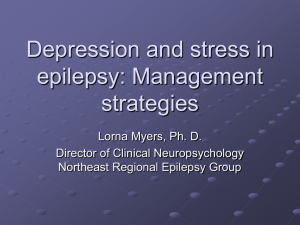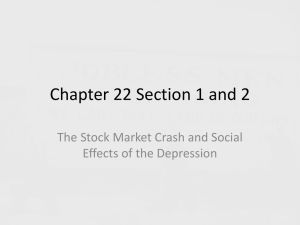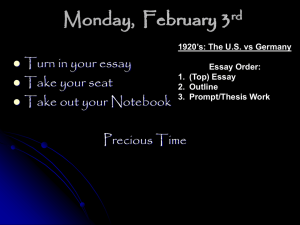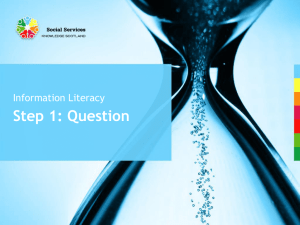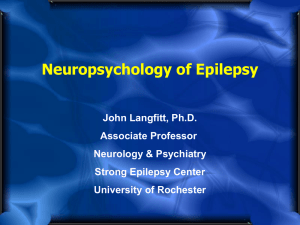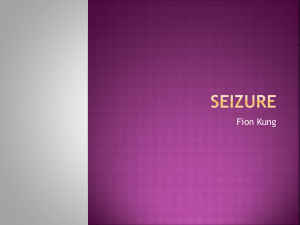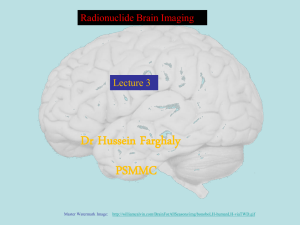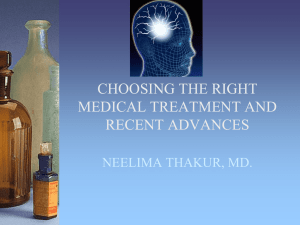Epilepsy and Depression
advertisement
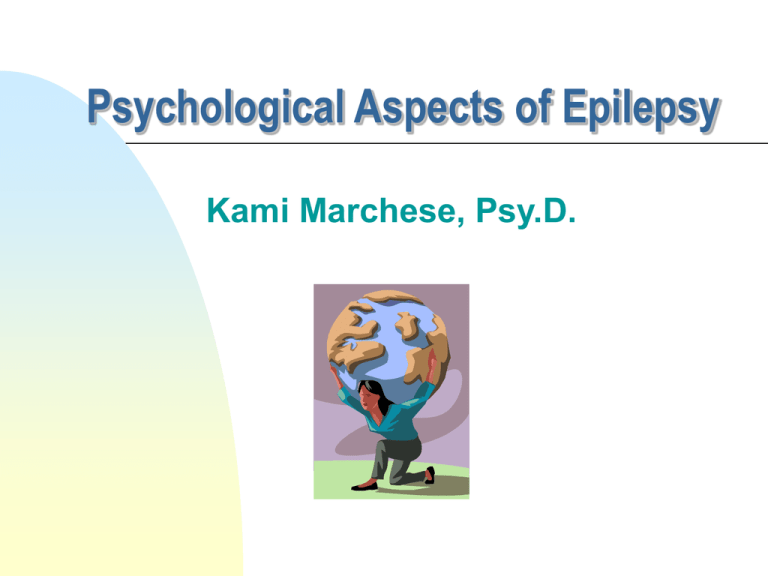
Psychological Aspects of Epilepsy Kami Marchese, Psy.D. True or False? It is normal to feel depressed when you have epilepsy True or False? Suicide is a major cause of death in epilepsy. True or False? Depression can be caused by antiepileptic medication. True or False? Feelings of anxiety and/or depression can be the manifestation of a seizure. Most Common Psychological Conditions In Epilepsy *Depression Anxiety Mania Psychosis Symptoms of Depression Depressed mood most of the day Loss of interest in activities Feelings of worthlessness Decreased concentration, indecisiveness Increased irritability Recurrent thoughts of death Change in appetite, weight loss or gain Sleep disturbance Loss of energy Psychomotor agitation or retardation Types of Depression Major Depressive Disorder (MDD) Dysthymic Disorder The difference between the two is based on severity, persistence, and chronicity. Lifetime Prevalence of Depression in Adults 10-20% - controlled epilepsy 20-60% - recurrent seizures 5.8% - in general nonepileptic population Suicide Suicide is 5-10 times higher in PWE than in the general population It is up to 25 times higher in people with temporal lobe partial seizures vs general population What is Unique About Epilepsy? Psychosocial Reaction to illness itself Lack of acceptance Poor adjustment to the diagnosis Individual’s adjustment Impact of epilepsy on the family Stigma and discrimination Lack of control and fear caused by random seizure occurrence Stages of Adjustment Disbelief Shock Denial Fear Anger Depression Anxiety Guilt Why In Epilepsy? Psychosocial Lack of social support Need to make significant adjustments in lifestyle Work limitations Dangerous heights, operating machinery, changing or cutting back on hours Giving up driving privileges Childbearing concerns Why In Epilepsy? Physiological (Directly Caused by Epilepsy) Reaction to seizure medication Brain regions are the same Endocrine or metabolic effects Antiepileptic Drugs (AED) that can cause depression Phenobarbital Primidone (Mysoline) Tiagabine (Gabitril) Vigabatrin (Sabril) Felbamate (Felbatol) Topiramate (Topamax) *Carbamazepine (Tegretol) and Valproic Acid (Depakote) *less frequent Physiological Causes of Mood Disorders Overlap in brain regions involved in epilepsy and depression PWE who had temporal lobe scarring had higher depression scores than other patients Depression is more frequent in PWE of temporal and frontal lobe origin Comorbidity of epilepsy and migraine Strong association between migraine and depression Depression Specific to Epilepsy Classified according to the temporal relation to seizure occurrence Pre-ictal: Prior to seizure onset Ictal: During the seizure and the expression of seizure Post-ictal: After seizure (includes up to 120 hours) Inter-ictal: Unrelated to seizure occurrence Inter-ictal Depression Most common among PWE Commonly presents as dysthymic disorder with waxing and waning course Ictal Depression Can be the clinical expression of a simple partial seizure where depression is the predominant or only feature Depression and Quality of Life (QOL) Studies have shown that depression is the strongest predictor of QOL Even more than seizure frequency and severity Cognitive Functioning Diminished attention and concentration Memory loss Reduced processing speed Difficulty making decisions True or False? It is normal to feel depressed when you have epilepsy. TRUE True or False? Suicide is a major cause of death in epilepsy. TRUE True or False? Feelings of anxiety and/or depression can be the manifestation of a seizure. TRUE True or False? Depression can be caused by antiepileptic medication. TRUE Next Steps Seek treatment Anti-depressant medication Individual or group counseling



